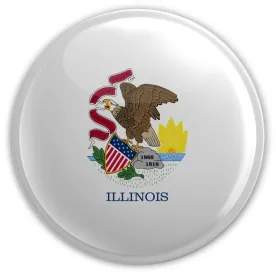Overview
In December 2013, an Illinois Appellate Court of the Fourth District held that an inter vivos trust – that had no connections with Illinois other than the fact that the settlor of the trust was residing in Illinois when the trust was created – was not subject to Illinois income taxation. Linn v. Department of Revenue, 213 IL App (4th) 121055. Even though the Illinois Department of Revenue (“IDOR”) had the opportunity to appeal the ruling, it did not do so. As a result, there may be an opportunity for inter vivos trusts established by an Illinois settlor to avoid Illinois income tax – if such trusts no longer have sufficient contact with the State of Illinois.
Background
The relevant portion of the Illinois Income Tax Act defines an Illinois resident as “[a]n irrevocable trust, the grantor of which was domiciled in [Illinois] at the time such trust became irrevocable.” 35 ILCS 5/1501(a)(20)(D). The trust at issue in Linn was established in 1961 when the grantor and trustee of the trust were Illinois residents. At the time the trust was established, the beneficiary of the trust resided in Illinois, and the trust assets were deposited in Illinois. The trust instrument provided that Illinois law would govern the construction, administration and validity of the trust.
In 2007, the trust filed a 2006 nonresident Illinois income tax return – as the trustee and beneficiaries were no longer residents of Illinois and the trust had no Illinois situs income. Additionally, the trust agreement had been modified in 2002 to provide that it shall be construed and regulated under Texas law. Due to the lack of sufficient contact with Illinois, the Illinois Appellate Court held that the imposition of Illinois income tax on the trust was unconstitutional in violation of the due process clause – as the trust did not meet any factors that would give Illinois personal jurisdiction over the trust.
Review of Existing Irrevocable Trusts
As a result of the decision in Linn, there may be an opportunity for certain trusts that have no contact with Illinois to avoid Illinois income tax. In spite of Illinois law that deems a trust to be an Illinois resident if the grantor of a trust resides within the State when it becomes irrevocable, the decision in Linn effectively invalidates that law when a trust no longer has any connections to Illinois. In the wake of Linn decision, we recommend that you review any irrevocable trusts established by a grantor who resided in Illinois (at the time of creation) to consider the following:
- The current residence or location of the trustee and the beneficiaries, and the present location of the trust assets.
- Whether the trust agreement contains provisions that (i) allow a trustee to be appointed outside the State of Illinois, or (ii) permit the law governing the trust to be changed to another state.
- Whether the trust allows “decanting” – which is a process authorized by a recent Illinois statute that allows the transfer of assets to a new trust, which could be governed by the law of another state.
- Whether a trust with no connections to Illinois for the past several years (and which filed Illinois income tax returns and paid Illinois income taxes) should file a claim for refund. Generally, there is a three year period from the due date (or filing date) of an income tax return to file an amended return and claim a refund.
Conclusion
The Linn decision is now the law in Illinois. Therefore, if you are a beneficiary or a trustee of a trust originally created in Illinois (or an advisor to any such beneficiary or trustee), you should examine whether the trust has sufficient connections to Illinois to be taxed.





 />i
/>i

